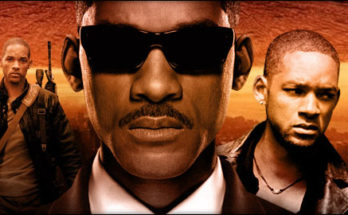The Hit List has a particularly exciting, enjoyably fascinating fantasy at its heart, tugging at the desirable idea of eliminating your enemies in real life (be careful what you wish for). As with all good thrillers, the fantasy eventually shifts into terror, as the humorous notion fades into a nightmare involving cold-blooded, violent death. The idea is brilliant, and much of the plot progression is masterful, but the overall execution is flawed. It’s almost as if the writers grasped a story that was too great for their own good, unable to tackle it the way more experienced filmmakers might have. Perhaps a few more minds needed to be involved in the various editing phases.
In Seattle, Washington, professional killer Jonas Arbor (Cuba Gooding Jr.) is suddenly struck by traumatic flashbacks, worsened by the fact that he’s recently discovered his health is waning. Instead of proceeding with the assassination he’s been assigned, he turns to vigilantism and strikes a different target, a controversial talk show host. Before any of the details are revealed, the opening scene merely shows Arbor crawling out of bed in his underwear, and a following shot with an agent claiming the hitman has gone missing. No action, no explosions, no killing – just a man in black announcing Arbor’s status. Then it cuts to the title sequence, complete with James Bond graphics and a theme song, also reminiscent of 007 – “47 Ways to Die,” by Lillian Axe. It’s incredibly anticlimactic, and one of the worst openings to any action movie.
Immediately, the introductory dialogue is generic; but when the thrills start to pick up, the conversations follow suit. Allan Campbell (Cole Hauser) is a corporate man in Washington D.C., struggling to get ahead, but always behind in money and outlook. His boss has lost faith in him; a younger coworker steals his promotion; and his wife Sydney (Ginny Weirick) is cheating on him with his best friend. He also has a brand new black eye from a loan shark he’s been unable to pay. When he stumbles into a bar to drink his sorrows away with Jack Daniels, he spies Arbor sitting nearby. Reluctant at first, Jonas decides to engage in friendly conversation, and in short time, the two are chatting like old buddies. Arbor reveals that he’s a professional killer, but Campbell laughs it off – although not before scribbling a hit list of five names on a napkin. Intended as a joke, Allan is mortified to discover that Arbor has elaborately planned to take out the five targets, as a favor to his new “friend.”
A major theme involves Allan standing up for himself and fighting against those who push him around. Arbor is clearly psychotic and Campbell has just created another relationship he can’t stand up to. Yet he needs the rogue agent’s help to handle at least one of the targets. Hilariously enough, one of the names on his list he’d actually like to see dead, but when the body count starts to rise, he realizes the truly horrific nature of his actions. He’s questionably an accomplice to every murder. The first target is his boss, Fred Gates (Rich Cowan); the second is his competition, the needling newcomer Brian Felzner (Sean Cook); the third is the lowlife thug he borrowed money from, Dom Estacado (Brandon O’Neill); the fourth, his best friend Mike Dodd (Drew Waters); and the final, most important hit is his wife – the one person he will sacrifice anything to protect. As the people on his list are quickly dispatched, the government agency employing Arbor is hot on his trail, along with local authorities.
The premise is intense and creative, along with a few of the action shots. The Hit List is really an exercise in creating a strong villain, however, and Cuba Gooding Jr. indeed rises to the occasion (he’s even got his own catchphrase). He’s not the greatest antagonist ever devised, but his Terminator-like characteristics and merciless assassinations are more than adequate. By the end, an Assault on Precinct 13 scenario is established, and Gooding remains a feasible psycho. The actual conclusion could have used some polishing, along with much of the dialogue, supporting characters and cinematography, but Gooding doesn’t disappoint. The Hit List had more potential than it knew how to handle, resulting in a film that could use a solid remaking by more seasoned filmmakers.



